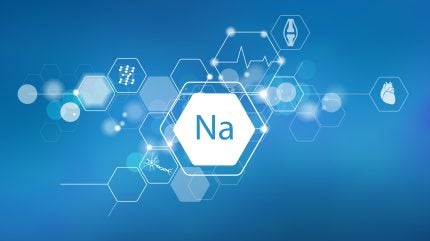
Following positive data reported earlier this year from a Phase I/II trial, Sequana Medical has touted results from a study showing its device’s superiority in clearing sodium versus traditional approaches.
The study, published in Kidney Medicine and includes research on both animals and humans, describes the preclinical to first-in-human development of Sequana’s solution.

Discover B2B Marketing That Performs
Combine business intelligence and editorial excellence to reach engaged professionals across 36 leading media platforms.
Sequana’s DSR 2.0 is a sodium-free dextrose/icodextrin solution that led to increased ultrafiltration and greater sodium removal compared to commercially available peritoneal dialysis solutions.
The authors of the paper calculated the difference in sodium removal to be more than threefold. Peritoneal dialysis solutions are sterile fluids that contain an osmotically active agent, such as dextrose or icodextrin, to remove waste products from the blood.
Dr Jeffrey Testani, associate professor at Yale University and scientific adviser to Sequana, said: “All commercially available peritoneal solutions were designed with a primary goal of cleaning toxins from the blood, whereas DSR 2.0 was created to specifically meet the unmet clinical need of removing salt and water.”
“This new tool will allow significant improvement in the care of our diuretic-resistant cardio-renal syndrome patients.”

US Tariffs are shifting - will you react or anticipate?
Don’t let policy changes catch you off guard. Stay proactive with real-time data and expert analysis.
By GlobalDataPatients with heart failure are often given loop diuretics to help kidneys remove extra fluid. Sequana’s DSR 2.0 therapy, which was approved by the US Food and Drug Administration (FDA) in May 2023, is administered into the abdomen via a peritoneal catheter and draws sodium towards it via a diffusion gradient. The body responds by eliminating the associated fluid via osmotic ultrafiltration and urination.
Data from Sequana’s Phase I/II MOJAVE study unveiled earlier this year showed that DSR therapy led to improved diuretic response in patients with diuretic-resistant heart failure, which also could eliminate the need to use loop diuretics in patients.
Sequana Medical’s other lead candidate is alfapump, a device for patients with a buildup of fluid in the abdomen. Sequana’s alfapump system has already been in use in Europe for more than a decade, having received CE mark approval for the same indication in 2011.
The alfapump system automatically collects the fluid and moves it to the bladder to be eliminated through urination. The system is currently under review by the FDA, with the company expecting approval before the end of Q1 2025.



